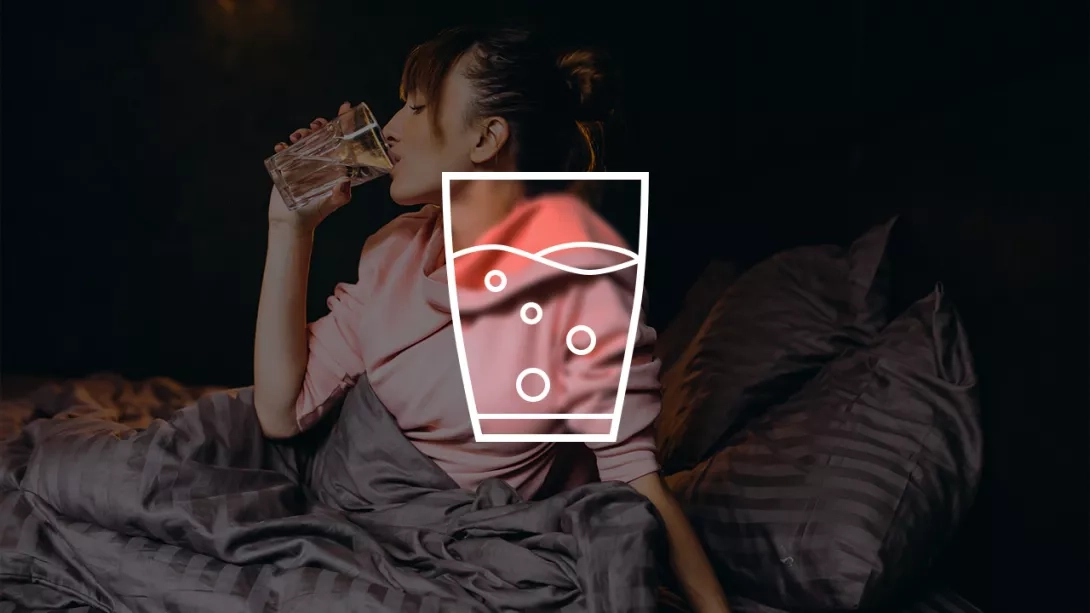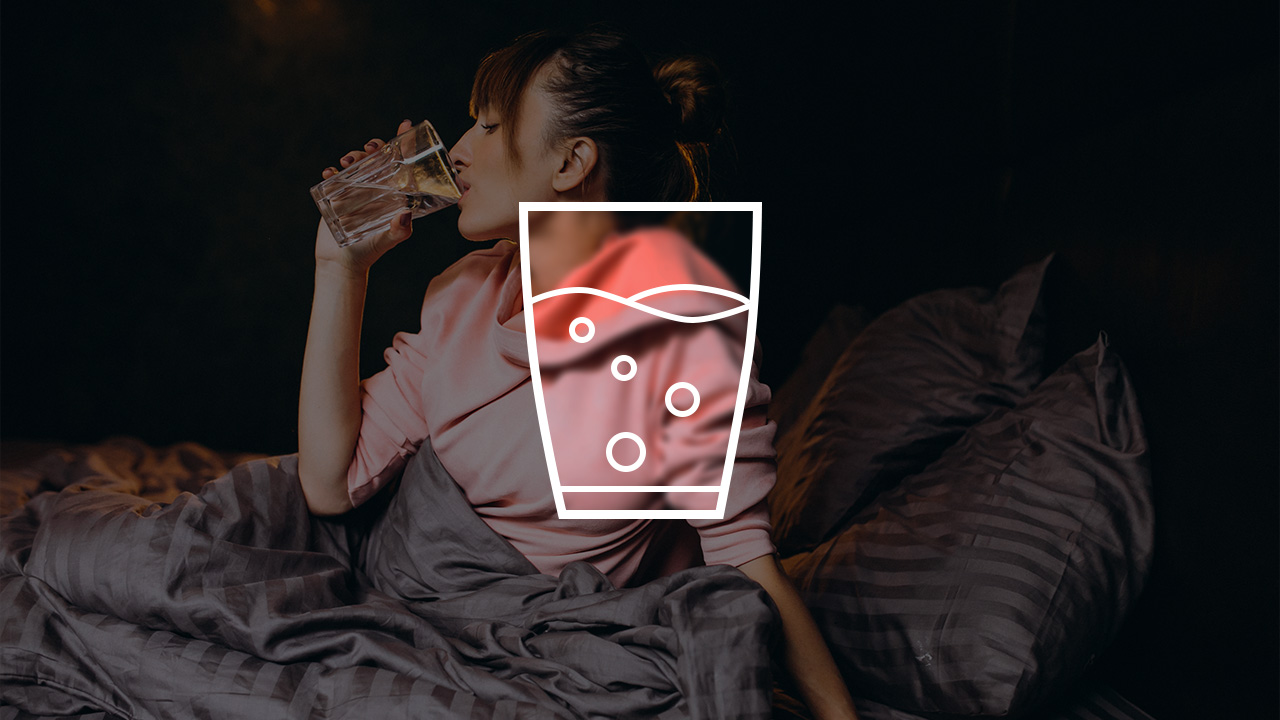One of the latest Instagram trends is to avoid drinking water after 4 or 6 PM, with claims that this helps reduce bloating and promotes weight loss. However, from a classical medicine standpoint, it's traditionally the opposite. Since this trend is gaining popularity on influencer pages, we’ll delve into it further by referencing scientific sources.
How Much Water Should You Drink?
To understand whether you should practice "water fasting" and comprehend the logic of water consumption, it’s essential to first clarify this issue. We often hear about the 8-glasses-a-day rule, which equals about 2 liters. In reality, it’s more complex—water intake is determined by several factors:
- Weight: Doctors recommend drinking at least 1 liter per 30 kg of body weight. This means a petite woman weighing 40 kg may find 2 liters too much, while someone overweight may need more.
- Physical activity and health: When engaging in sports or while ill, we sweat more, so moisture leaves the body more rapidly.
- Environmental temperature: Heat exchange through the skin increases due to sweating in hot environments, so insufficient water intake can lead to dehydration or even heat stroke.
- Kidney and cardiovascular health: With specific health issues, such as salt metabolism disorders, fluid intake is often tailored to individual needs with a doctor’s consultation.
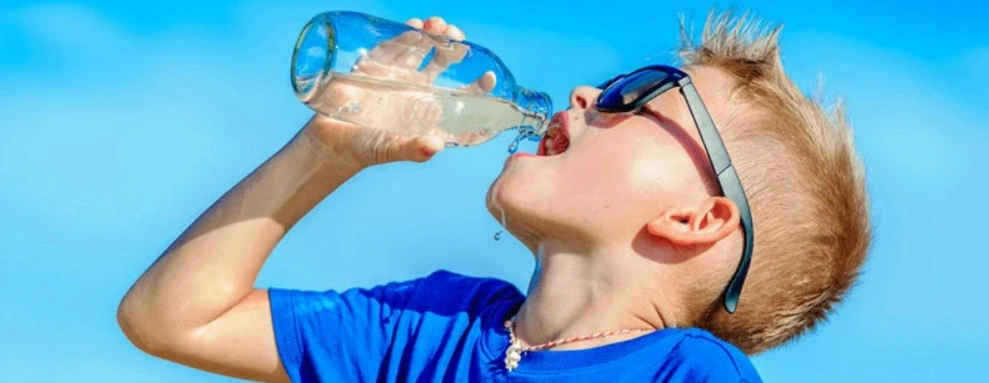
Remember that daily water intake also includes fluids in tea, soups, juices, fruits, and vegetables. There’s no need to drink water just for the sake of it if you're not thirsty. We previously wrote about how much water adults and children need and what these numbers depend on.
Can You Drink Water Before Bed?
After some random influencer references, we searched for answers on Google and in scientific literature. The notion of avoiding water at night exists only on dubious platforms and, unsurprisingly, lacks any scientific backing. All publications from reputable medical and science sources emphasize the benefits of drinking water at night and outline real contraindications. No research supports the claim that prolonged breaks in water consumption benefit human health, so we’ll rely on indirect data.
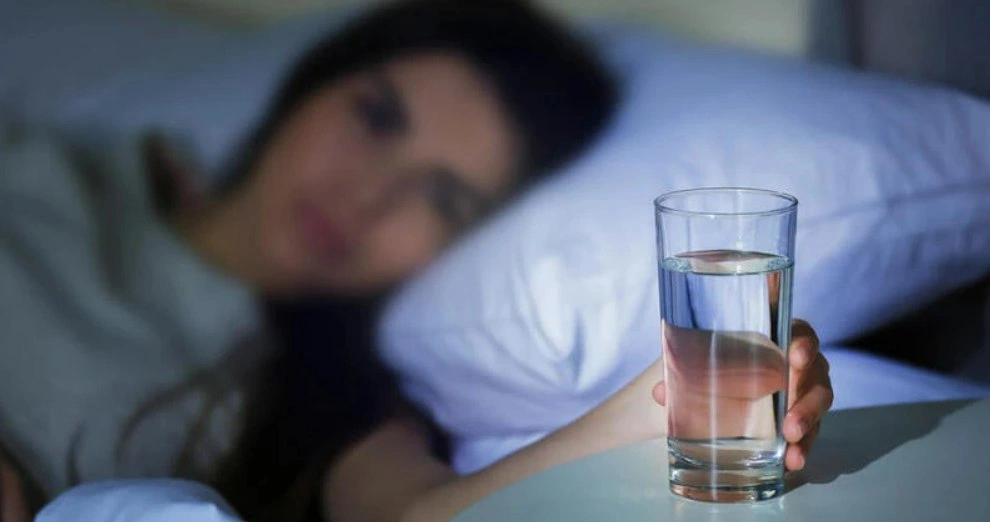
What Happens if You Drink Water at Night?
Let’s start with real contraindications and limitations that are scientifically backed and rooted in medical recommendations:
- Frequent nighttime urination (nocturia). During sleep, metabolic processes, including urine production, slow down, which reduces the frequency of urination. Normally, people shouldn't wake up more than twice a night to use the bathroom. If urination increases, it may lead to sleep deprivation. The causes of nocturia vary and could indicate underlying issues such as:
- Excessive fluid intake in the evening or before bed (this warrants adjusting your hydration habits).
- Insufficient production of antidiuretic hormone (related to conditions like enuresis in children and the elderly).
- Certain medications, including antihypertensives, antidepressants, or calcium channel blockers.
- Kidney, cardiovascular, or nervous system disorders.
- Psychological factors.
- If your hydration habits are balanced but you still experience excessive urination, consult a doctor rather than restricting water intake from mid-afternoon onwards.
- Morning swelling and beyond. Swelling in the face or limbs can be a sign of conditions such as heart failure, hypertension, varicose veins, kidney or liver issues, or endocrine disorders. Swelling can also result from nutrient deficiencies, prolonged fasting, high salt intake, certain medications, and supplements. Interestingly, dehydration can also cause swelling due to electrolyte imbalances.
Benefits of Drinking Water at Night
Thirst is a sign of early dehydration. If you don’t address this, your body will trigger processes to retain water.
It's important to remember that dehydration risk increases in hot weather, during physical exertion, or when experiencing cold symptoms, diarrhea, or after alcohol consumption. In such cases, it’s best not to deprive your body of water.
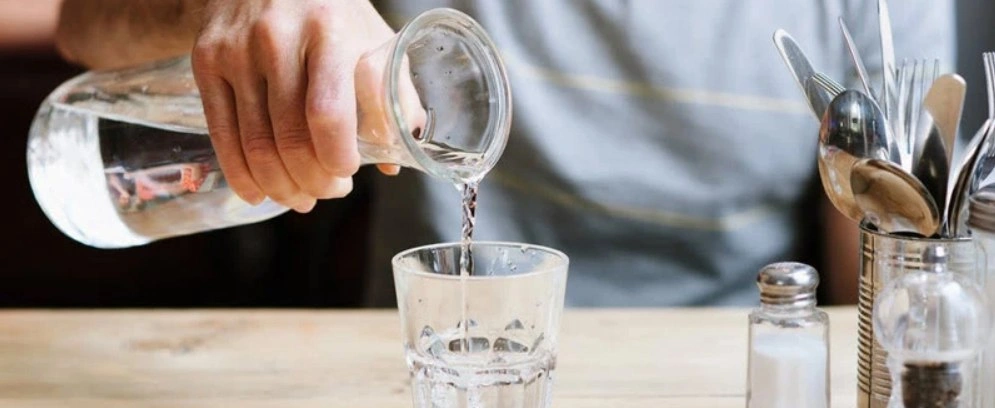
Drinking enough water throughout the day improves overall well-being and leads to better sleep. This also answers the question of whether you can drink water at night: if your body signals thirst, it needs water.
- Even mild dehydration can cause headaches and trigger migraines.
- Your body may confuse thirst with hunger, leading to overeating, which negatively impacts weight management. Therefore, drinking water can help prevent overeating.
How Long Before Bed Should You Stop Drinking Water?
By drinking water evenly throughout the day, you distribute the workload on your urinary system. Depending on your body's characteristics and the environment, water starts being processed out of your body in about 30-60 minutes. Since the bladder's capacity ranges from 200-550 ml, and not all the fluid is converted into urine, you can determine your personal water intake before bed. Medical guidelines recommend limiting water intake anywhere from 30 minutes to 2 hours before sleep, depending on your body’s specific needs.
